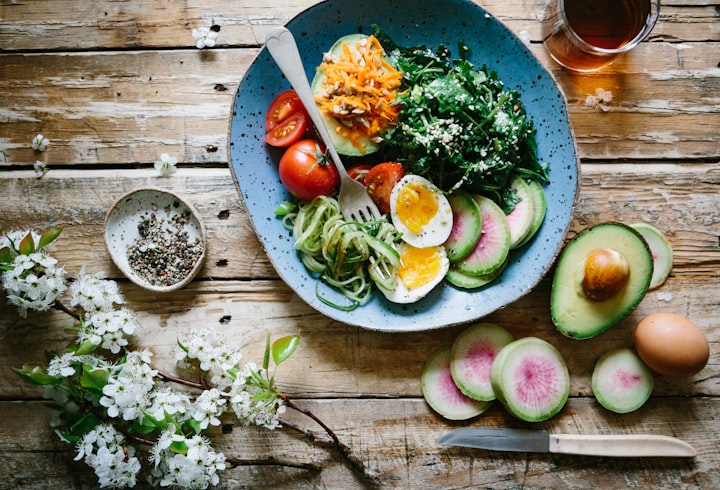What is a Healthy Relationship with Food?
This popular nutrition term is more holistic than you think!

I talk on and on (and on) about building a healthy relationship with food and the body – it’s literally a daily element of my job and the conversations I have with my clients.
On a regular basis you’ll hear me asking: “Tell me about your relationship with your body? With your eating patterns? Have you had a difficult relationship with food?”
I talk all day long about a healthy relationship with food and yet it doesn’t really answer the question of what a healthy relationship with food actually is.
I preface this with acknowledging the privilege I have had in my life, being a thin, White and cisgender woman and who operates through the world without fatphobia, racism and transphobia impacting my ability to embody myself.
Building a healthy relationship with food and our body is a journey, and it’s very often a lifelong one. This is similar to all of our other relationships – partners, friends, families, with children and with work. These relationships are rarely the same for their entire lifespan, and the dynamics can have messy fluctuations. Humans seek connection and relationship; we want to be welcomed and safe with others. When we put this lens on it, wouldn’t it make sense that we want that same welcome mat and security within ourselves?
The first element we want present in a healthy relationship with food is being able to allow and welcome all foods without restriction, and without the labels of “good” and “bad”. Now of course there is consideration for medical necessity and in this situation the restriction is contextual and monitored. When we begin building intuitive eating skills, we incorporate the idea of unconditional permission to eat – when we label foods, we come to create conditions in which we are allowed or not allowed to eat and this separates us from our internal knowing of what feels good to us and is truly desired. We end up in cycles of restriction and shame when we eat, and we’re limiting in our ability to find inspiration, preference and satisfaction.
By removing restrictions and labels, we create a wide expanse of finding food that we actually enjoy and the capacity to tune into what we feel best eating – because, yes, your body does have things it prefers to eat on a regular basis and this is okay.
The next element is seeing the value in food beyond calories. We often start with the notion that food is fuel and helps us to do all of the things in our day. However, this misses acknowledging that we also eat for enjoyment and for fun. Our bodies aren’t projects to be finished, they are the instruments in which we enjoy life. Food lives along a Microsoft Word colour wheel spectrum of energy and nutrients – some have lots of energy and not a lot of nutrients, some lots of nutrients and low energy and some together on both sides of this. The goal is not to stick to one section of this spectrum but to allow variety across all of it, and to see the beautiful value that eating for comfort, celebration and more can bring to living.
We also need to see that our value in being human is not dictated by the food we eat or the body we are in. Food is neutral in the same way that sleep, drinking water and using the washroom are. We can shift our thinking to see that our bodies are worthy of love, respect and care at all sizes, shapes and abilities.
A piece that I find gets missed often in the conversation about a healthy food relationship is seeing eating as a way to relax and tune into our bodies. Eating provides an opportunity to pause during the day and to be with ourselves or others; we’re not rushing to end the experience. Now I realize that there are times we rush to eat, between meetings, in the car and between patients. Life happens! Food can still provide this powerful chance to be present in our bodies and to create peace.
The last element important for a healthy relationship with food is the ability to see any changes we make around nutrition as being maintainable and enjoyable, and as a self-care modality. We can ask ourselves why we are choosing to make changes, and the goal we hope to achieve in doing so. Are we trying to change our body through our food? Or are we trying to align with our body needs through our food? We can start to see food as one of the many ways we care for ourselves, and that we are deserving of this care no matter what.
Health isn’t a requirement to be loved and respected, and there are many reasons why health is out of reach (and everyone’s definition of health is different to begin with!). But building a healthy relationship with food helps us to identify what health really means to us, and how we put this at the forefront of our lives.
About the Creator
Emily the Period RD
I help people with periods navigate menstrual health education & wellness with a healthy serving of sass (and not an ounce of nutrition pseudoscience).






Comments
There are no comments for this story
Be the first to respond and start the conversation.